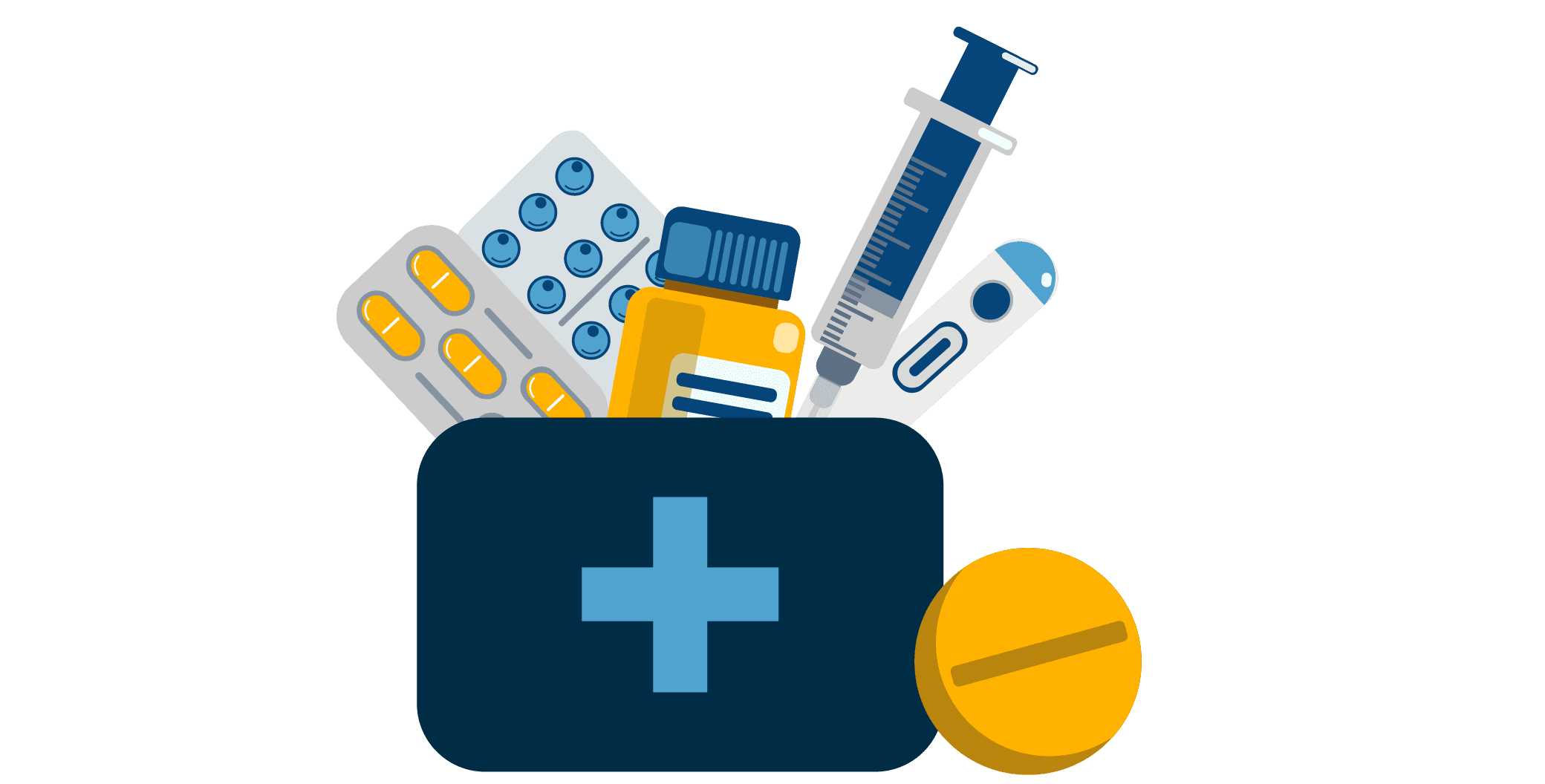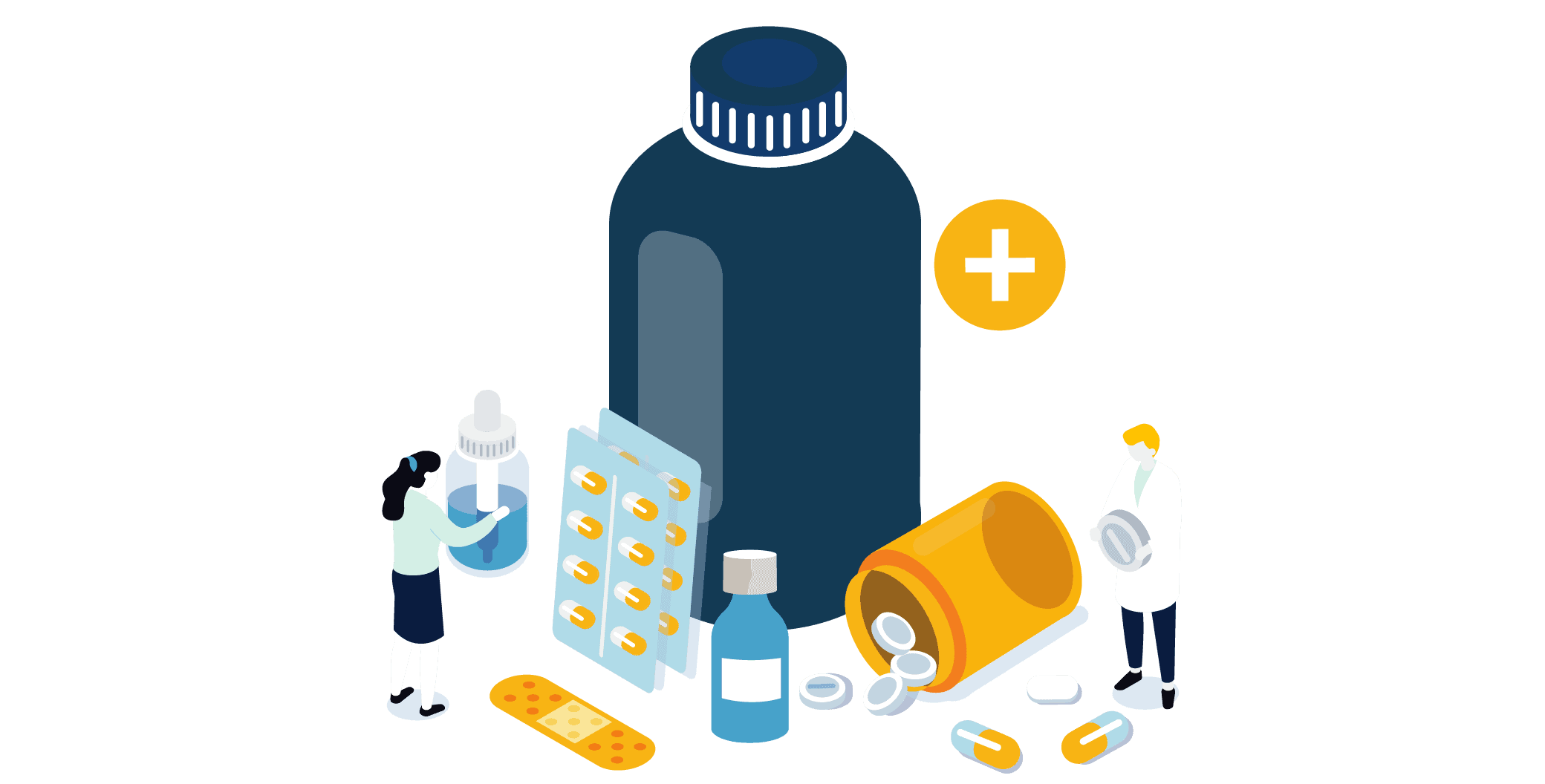How to take advantage of early access programs for your innovative treatments in France?

10 February 2022
BlueReg
Known as Expanded Access Programs in the US, early access programs (EAP) allow access to medicines for certain patients before marketing authorization.
The French early access program, authorization for temporary usage or temporary authorization (“autorisation temporaire d’utilisation” - ATU), was originally initiated to enable the sale of certain medicinal drugs offering solutions to serious or rare diseases ahead of any pricing negotiations, market permission or reimbursement. The ATU program was initially designed to provide access to new therapies for human immunodeficiency viruses (HIV). Since then, it has expanded to cover all areas of research and services.
Since it was launched in 1992, early access programs have been a crucial consideration for manufacturers who seek to minimize access delays and bring life changing therapies to patients as early as possible.
This program provided patients with life-threatening diseases who do not have any other therapeutic options (high unmet medical need) access to medicinal products that are still under clinical trials and/or not yet approved by any European regulatory authority.
ATU has been extended in 2010 creating two systems: cohort ATU and nominative ATU (named patient). The system has been further developed ending with six interlinking schemes, with different perimeters, eligibility criteria and reimbursements.
In 2021, in the context of the French social security system's financing law, the procedure for temporary authorization for use (ATU) and exceptional reimbursement of medical products was modified, to simplify the schemes that permit early access to new drugs. This simplification aimed to accelerate patient access by making the process quicker and less complex. It also enriched patient access by making the schemes more attractive to companies that are developing innovative medicines.
1. What is the new system for early access programs in France?
The six pre-existing schemes have been simplified into two separate but interlinked paths:
- Early access authorization (“autorisation d’accès précoce” or “AAP”)
- This system be implemented as a pre-MA early access program (“AP1”) or post-MA (“AP2”).
- Compassionate Use :
- Compassionate access authorization (autorisation d’accès compassionnel or “AAC”) (formerly ATU-by named patient)
- Compassionate access framework (cadre de prescription compassionnel or “CPC”) (formerly the RTU)
2. What are the conditions for a drug to be eligible to EAP according to French authorities?

EAP is qualified as an exceptional derogation-based program that allows early release and reimbursement for one or more indication(s) of a medicinal product when all the following 5 conditions are satisfied according to article L.5121-12 of the French Public Health Code (CSP).
- The drug is indicated for a severe, rare, or incapacitating disease,
- There is no appropriate treatment,
- The initiation of the treatment cannot be deferred,
- The efficacy and safety of the medicinal product are strongly presumed based on the results of clinical trials (when the drug is not yet licensed in Europe in this indication),
- This medicinal product is presumed to be innovative, notably with regards to clinically relevant comparators.
When a manufacturer applies for an EAP authorization for a specific indication, the HAS (“Haute Autorité de Santé”) evaluates the remaining 4 eligibility criteria once a favorable analysis of the presumption of efficacy and safety of the indication has been completed by the ANSM (when no MA has yet been granted for this indication).
The HAS cautions that this "early access" scheme is simply a stopgap. A clinical trial must be prioritized in the inclusion of prospective participants in an ongoing study with the drug in question.
3. In which case EAP authorization are applicable?
Pre-MA early access
Concerns an indication where no MA has yet been granted, and for which the pharmaceutical company has submitted or commits to submit an MA application within 2 years following the application for EAP.
Following a favorable opinion from the ANSM, confirming that the pharmaceutical product's claimed effects are genuine and safe for the indication, it is then authorized by the HAS.
The pre-MA authorization is contingent on a therapeutic use and data collection protocol (“PUT-RD”) approved by HAS and the periodic submission of a summary report of the data collected.
Post-MA early access
Concerns an indication where a MA has been granted in Europe and for which the pharmaceutical firm has submitted or commits to submit within one month of its MA, a reimbursement dossier under the common law system. Post-MA early access can apply to:
- an indication previously authorized for pre-MA early access,
- an indication that has never been approved for pre-MA early access (first post-MA early access application).
The post-MA early access authorization is subject to a protocol for therapeutic use and data collection from treated patients (“PUT-RD”), which is reduced when compared to the pre-MA” scheme (particularly with regards to safety information), as well as the periodic submission of a summary report of the data collected.
4. What does this mean for pharma? What has changed?

The reform led by the social security funding bill in France in 2020 has some implications:
- Roles of HAS and ANSM
- Eligibility criteria updated for AAP
- Timelines
- Data collection
- Price setting during early access VS Final negotiated price
Roles of HAS and ANSM
The early access to medicinal products for innovative treatments is now overseen by HAS, French HTA body, in association with the French national agency for health product safety (ANSM).
For pre-MA early access, ANSM is still involved for the assessment of product safety and efficacy, whereas HAS is the only decision-maker for post-MA early access.
The ANSM oversees both compassionate access programs. The AAC is requested by the prescribing healthcare professional (“HCP”), and the CPC is requested by the Ministry of Health or set up on the ANSM's own initiative.
Eligibility criteria updated for the AAP:
- Concerns the treatment of serious, rare or disabling diseases, when no appropriate treatment available
- Start of the treatment cannot be postponed
- Efficacy and safety of these drugs are strongly presumed from the results of therapeutic trials
- Drugs are presumed to be innovative, in comparison to a possible clinically relevant comparator
Definition of the “clinically relevant comparator” will be the key for EAP eligibility.
The HAS requires that a product be considered innovative if it fulfills three criteria:
- it represents a new treatment modality for the disease, that brings a “substantial change” to patients (g., in terms of quality of life or convenience of use); and
- it has an appropriate development plan and presents clinical results that support the presumption of a benefit to the patient; and
- there are no significant “unknowns” relating to safety or other important data.
HAS would like to make early access programs open only to the innovative therapies that are in high need (for example, life-threatening serious or rare diseases). This modification will probably impact the number of requests for EAP to new drugs.
Timelines
Before the reform, the ANSM was not required to decide on ATU applications within a specific time period. The new scheme defines a review period of three months maximum from the notification of completeness of the dossier until early access authorization. Following the approval, the firm committed to make the product available within two months.
Clearer patient monitoring and data collection obligations
The obligation for the company to adopt and comply with a protocol for therapeutic use and the monitoring of patients (“PUT-RD”) is maintained for the AAP, AAC, and CPC. The PUT-RD provides a framework for the collection of data on efficacy, adverse effects, real conditions of use and the characteristics of the population treated with the product.
The CPC can avoid the PUT-RD obligation by satisfying one of the following conditions: if there is enough knowledge on the product's indications of use, or when a comparable medicine authorized in that indication is available. This was also true for the previous RTU scheme.
The HAS has begun to create advice on the PUT-RD for drugs under AAP. It stated that patients will be better integrated in the PUT-RD's implementation using patient-reported outcome measures (“PROMs”), which are defined by the company together with patient organizations.
Price setting during early access VS Final negotiated price
The manufacturer is still able to set a free price for the products under EAP (if there is not pre-existing price published in France) but the mechanism for payback has changed and is now in 2-fold:
- A predefined yearly claw back based on the turnover in the indication concerned, with maximum amount defined
- At the end of the EAP, a claw back based on the difference between the price set during the EAP program and the final listed price (i.e., published). Price negotiations (market access) are therefore key for the post-MA early access.
5. Why EAP in France can be attractive and complex at the same time for biopharmaceutical companies?

Why EAP is attractive?
Patients can benefit from the treatment ahead of first European marketing authorization. Indeed, health products can reach market earlier, preparing for future commercial launch in France and in the rest of Europe:
- Allowing continuous access to the drug for patients
- Building the company image before commercial launch
As well, product can generate turnover before being approved elsewhere in Europe:
- Setting the scene for future market access (pricing & reimbursement) of commercial products
- Accelerating P&R review process with pre-defined timelines
ATU in France: Figures & Outcomes
French regulatory authorities (ANSM) recently published a retrospective study (E. Jacquet et al. European Journal of Cancer 149(2021);82-90) on access time for anticancer drugs, comparing FDA, EMA and the French EAP (ATU: cohort ATU and nominative ATU) scheme over 13 years.
What are the main outcomes?
- Between 1st January 2007 and 31st December 2019, ANSM evaluated and granted ATU in oncology to 36 antineoplastic drugs
- Thanks to the ATU granted, almost 70% (25 out of 36) of drugs were made available in France before FDA approval
- Thanks to ATUs, drugs are on average available in France 200 days before their first regulatory approval (FDA or EMA)
Why EAP in France can be complex to manage?
- A new regulation has come into force since July 2021 modifying a lot of parameters such as the content of the file, the authorities in charge of the evaluation system
- Process is specific to France and not aligned with other EU countries pathways
- Daily management of early access continues to be time consuming, with numerous administrative steps
- Data collection has been reinforced with addition of PROMs and requirement to collect at least 90% of data within an EAP
- The drug must answer to all early access eligibility criteria
6. Why having a third party to run your EAP in France is highly recommended?
Regulatory Constraints
- French regulatory authorities require having an « Exploitant » authorized and established in France to manage an EAP
Financial / Resources Constraints
- Tangible investment if you want to setup your French affiliate, particularly so early in the access pathway
- Your internal resources are fully dedicated to FDA and/or EMA submission in parallel to EAP request/management
Administrative and Management Constraints
- Approval process of EAP is specific to France, with a detailed and standardized dossier to be prepared and submitted
- Submission and assessment process requires regular interactions with Authorities, HAS and ANSM
- EAP management requires French speakers to deal with prescribing physician(s), pharmacists, hospitals, authorities…
The Pharmaceutical industry has been booming in France for a number of years, and the country is now home to +200 major pharmaceutical companies or affiliates. With this significant growth comes new regulatory changes that will impact many biopharma organizations interested to launch in this market. For those not prepared, these steps can be extremely difficult without outside support from third party providers like BlueReg.
That's why we recommend taking advantage of our experience today by contacting us if you want help managing your EAP in France or any other regulatory affairs services.
7. Our Experience to manage early access programs for pharmaceutical companies

BlueReg has built a huge expertise in handling early access programs including in France (ATU before the new regulation). Indeed, we managed major ATU programs for our clients between 2016 and 2020 including 9500 + patients for rare diseases or medical conditions with strong medical need.
We are very proud to announce that one of our clients has been granted early access authorization in France on late October 2021 (AP2) through the new regulation.
The product is a gene therapy indicated in a rare and inherited disorder where the disease burden on children, families and caregivers is immense.
This authorization in France allows this company to accelerate time to market in this Key European Market.
BlueReg and PharmaBlue (our French subsidiary) accompanied this client up to the HAS Decision granted on late October 2021.
To date, we submitted 3 dossiers for early access for other clients and we are scheduling the submission of 3 additional ones by end of Q1 2022 through the new regulation.
You are a Pharmaceutical Company developing innovative treatments and you are looking to introduce your first product on the European (EU) Market and possibly accelerate via early access paths?
Don't hesitate to contact us and we will be pleased to work together with your team to optimize your European & French regulatory strategy.





